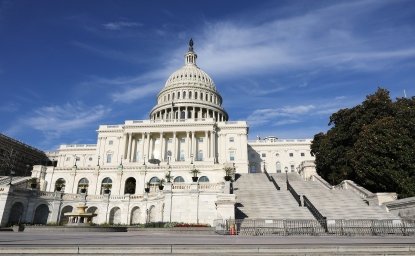Assessing U.S. Sanctions: Impact, Effectiveness, Consequences


Sanctions in general
Sanctions are fashionable in Washington. In fact, sanctions are a useful tool, but only that: used well, they can be effective, but they can be overused. Moreover, sanctions are only as good as the policy they seek to advance.
Why sanctions? What are our objectives in imposing them?
- To change behavior: to alter the decision-making calculus of a government or non-state actor. This includes on-going behavior and deterring bad actions in the future. Sanctions thus should be temporary; once the bad behavior has ended, they should be lifted.
- To constrain: to make it more difficult for a government or non-state actor to perform certain, defined bad activities, e.g., making it harder for DPRK to procure nuclear-sensitive material.
- To stigmatize: to make clear that a certain activity is illegitimate, e.g., with sanctions against the Taliban, the asset freeze and travel ban may be of limited effectiveness, but the Taliban still wants to be removed from the UN’s sanctions list because they do not like the stigma of being on a UN terrorism blacklist
- Sanctions do’s and don’ts:
- Don’t be in a hurry. Sanctions take time, and will not accommodate themselves to the news cycle or even our political cycle.
- Don’t be greedy. Don’t go for the “big win” or look for the other guy’s white flag as a quick win.
- Don’t look for purity. Sanctions sometimes have unintended consequences and costs. These can be mitigated and managed, not wished away.
- Don’t default to sanctions. Sanctions are sometimes described as the middle option between passivity and invasion. Perhaps so, but that doesn’t make them the right tool under all circumstances.
Given all that, what are our sanctions do’s?
- Multilateral sanctions are better. UNSCRs are the gold standard, and on DPRK UNSCRs are pretty extensive. But UNSCRs are not the only standard. Second best is regional/ European/G7 buy-in. Multilateral sanctions are better, both in principle and on the ground.
- Smart sanctions are essential. Sanctions should hit where they have the right balance of impact: hit the target of sanctions, not us and our friends. We should apply sanctions to the right people, the right companies, and the right sectors. We should consider local conditions when determining the right combination of travel bans, arms embargoes, and financial sanctions. We should deal with unintended consequences when sanctions hit friends and partners.
- Sometimes travel bans appear pointless. But a travel ban played a major role in forcing Laurent Gbagbo to give up power in Cote d’Ivoire; he was vulnerable because he had many homes outside the country and a daughter studying in the U.S.
- Invest in sanctions capacity. Doing smart sanctions requires resources. OFAC – Treasury’s Office of Foreign Asset Control, which administers many of our sanctions and is a first-rate organization, did not spring up overnight. There is no substitute for well-functioning bureaucracies with capacity to pick targets and defend them; analyze impact, deal with exceptions.
- Make messaging clear. Be explicit as to why certain individuals and entities are being sanctioned, and what it will take to lift sanctions.
- Know when to end them. Remember what you set out to achieve through sanctions, the better to know when to wind them down.
- Mean it. To maintain sanctions, you need to invest serious political capital at home and abroad. You will get push back: from companies; from foreign governments; and from within, from people and groups both principled and otherwise. Sanction when you’re willing to go the distance.
- Longer-term drawbacks. Sanctioning entities had better wield serious economic power. The dollar is still by far the world’s largest reserve currency, which makes U.S. financial sanctions powerful. Overuse of sanctions can trigger tactical retaliation, which may or may not be effective, but also strategic retaliation in the form of long-term steps to limit the dollar’s reach. Sanctions are a tool of the strong, our tool, as long as our strength is commensurate with our ambition.
Russia Sanctions
- This is the biggest sanctions regime ever, in terms of the size of the sanctioned economy.
- It is worth recalling the enormity of the decision by the U.S., the EU, and G7 to sanction Russia. In a sense, these sanctions reverse the direction of Western policy toward Russia for the past (nearly) thirty years. The precipitating factor was Russia’s turn from an unevenly reforming “convergence” state, as we thought, to a revisionist and authoritarian aggressor.
- Let’s dispense with the self-serving Russian narrative of grievance and resentment: the West – and five U.S. Presidents – sought to build better relations with Russia, starting with Reagan-Gorbachev and sticking with it through the Yeltsin years, through early Putin, and even through the Russo-Georgia War, via President Obama’s reset. Russia’s aggression against Ukraine, the first territorial seizure in Europe by one country against another since WWII, put into question the strategic assumptions of a generation. Russia is behaving as a revisionist power, and what it seeks to revise are the post-Cold War arrangements that made Europe whole, free, and at peace a reality for the first time in history.
- Sanctions became the pillar of our response to this challenge.
- In imposing these sanctions, we have tried to follow our own precepts:
- The Russia sanctions are multilateral: perforce not UNSCR, but with a U.S.-EU core, and also with G7 allies; and consultations at each stage, in advance and in detail. Unusual for sanctions. Worth it.
- The Russia sanctions are (intended to be) smart: in energy, sanctions included future oil production through restrictions on frontier technologies, not current sales; in finance, sanctions included some blocking sanctions, but more use of debt/equity restrictions. Our theory: sanctions should impose a slow squeeze rather than a destabilizing crisis. At each stage, we analyzed risks to us and the Europeans and G7/Japan (destabilization), and costs to Russia.
- These sanctions advance a policy: the support of Ukraine’s sovereignty and Ukraine’s right to find its own way, if it can, as a reforming and converging nation, and in support of Minsk. The way out is clear and agreed: when and if the Russians fulfill their obligations under the Minsk package – the most important of which is the restoration of the international border -- sanctions start coming down.
- Minsk consists of a ceasefire, withdrawal of Russian weapons and forces; (from the Ukrainians) significant and some specified decentralizing reforms and local autonomy, and; finally, restoration of the international border.
- Ukraine has adhered well to its part, including decentralizing legislation and the beginning of a Minsk-mandated constitutional reform process.
- Cannot say the same about Russia: its forces are present in Ukraine, whatever President Putin may claim, heavy Russian equipment is still flowing across the international border. We cannot take the post-Debaltseve lull as the norm. In fact, fighting has intensified even as Russian forces are increasing their presence on the border.
- According to Minsk’s own terms, restoration of the international border – the key step to resolve the aggression – will not occur before the end of the year, back loaded at Russian insistence. Therefore, sanctions should be extended until at least that time. Happily, the EU on March 19 took just such a position, which we support.
- Consensus exists along above lines between U.S., EU, and G7 allies. In particular, EU commitment and strength has been pronounced dead many times. These pronouncements have been wrong each time. Europe has shown more resolve and more strategic coherence than many thought likely, including some Europeans, some Americans and, I suspect, many Russians.
Do sanctions work? Are these sanctions working?
- Skeptics point out that Russia is still in Ukraine, and likely to keep holding Crimea.
- But (as noted above), we cannot expect sanctions to lead to surrender. The relevant question is rather: are sanctions changing the context in which Russia’s decisions are being made? Would we have achieved the Minsk package, even with its weakness of implementation, without sanctions? Consider the alternative of the failure of transatlantic unity and no sanctions. What would President Putin have then concluded about the character and strength of the West? Would we then have more than occupied Crimea and part of Donbas? Would Russia have grabbed more territory, and would we face a full-fledged puppet state of “Novorossiya”?
- With sanctions, don’t be in a hurry and don’t be greedy: they can help, but they will not solve problems by themselves. If we maintain them, sanctions’ impact will be felt more strongly over time. Russia sanctions have contributed to a weaker and stressed Russian economy, and major drops in Russian reserves.
- The Russia sanctions can buy time and space for Ukraine to implement the reforms it must implement to survive as a sovereign state. Sanctions may push the Russians to settle in Ukraine on terms consistent with our bottom line: a sovereign Ukraine. Maybe we’ll get there.
Kennan Institute, Wilson Center
Washington, DC
With support from the Henry M. Jackson Foundation
April 16, 2015
(As Prepared)
Author

Kennan Institute
After more than 50 years as a vital part of the Wilson Center legacy, the Kennan Institute has become an independent think tank. You can find the current website for the Kennan Institute at kennaninstitute.org. Please look for future announcements about partnership activities between the Wilson Center and the Kennan Institute at Wilson Center Press Room. The Kennan Institute is the premier US center for advanced research on Eurasia and the oldest and largest regional program at the Woodrow Wilson International Center for Scholars. The Kennan Institute is committed to improving American understanding of Russia, Ukraine, Central Asia, the South Caucasus, and the surrounding region through research and exchange. Read more




